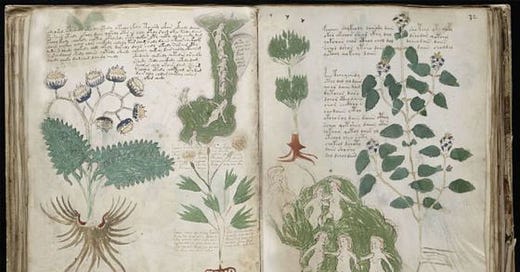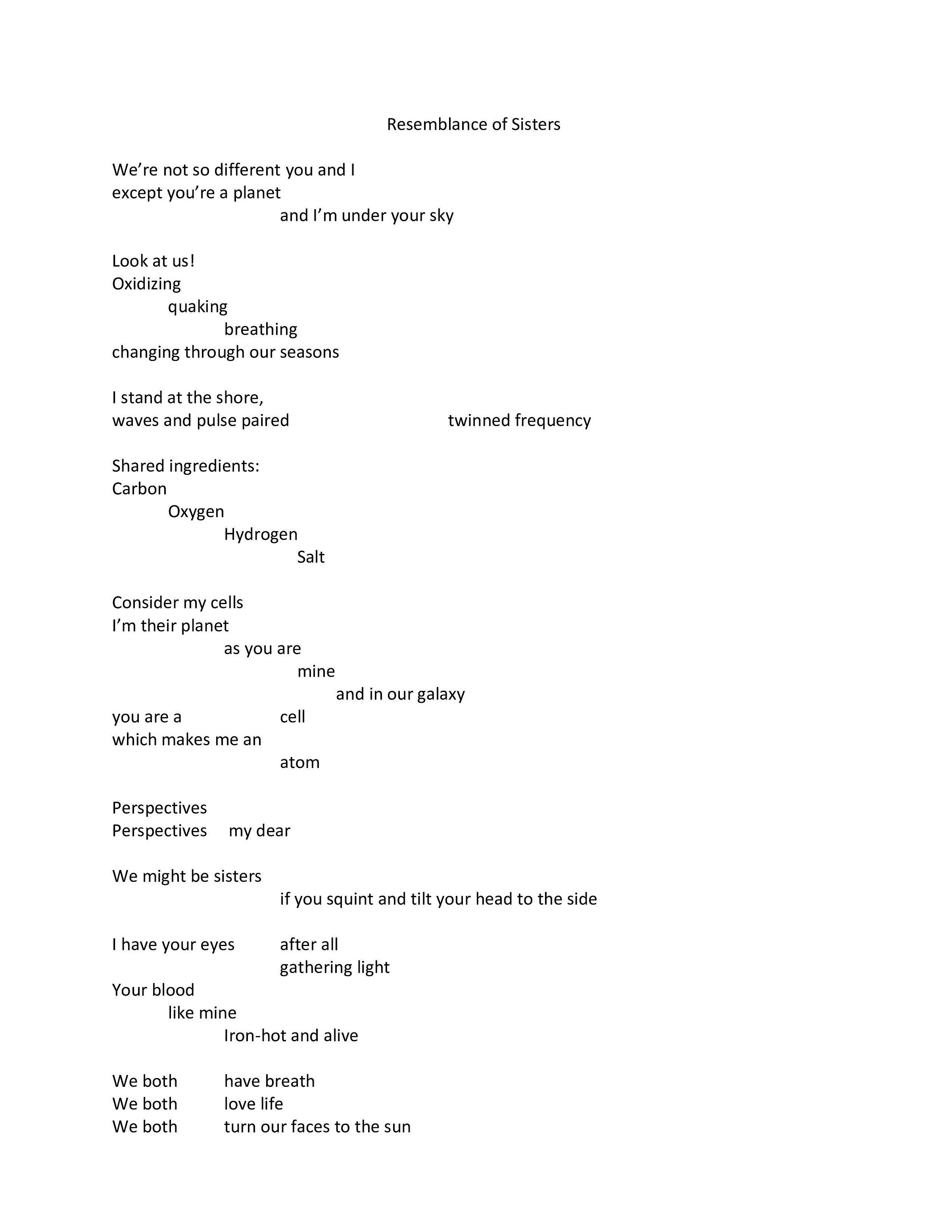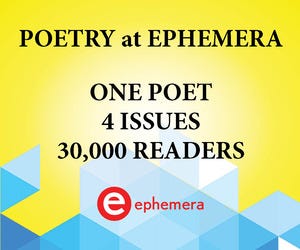Welcome to the Ephemera Newsletter, Teman-Teman! (Indonesian for “friends”)
This is the final issue featuring Ashley Williamson, the Ephemera poet for the month of February. You can review her poems altogether once they publish as well as her artist statement and bio on this dedicated post on our substack page. This week, we begin our letter with a poem from Ashley!
Poetry by Ashley Williamson
And here are some reminders/announcements:
Please Take A Moment To Review Our Sponsor: Good Contrivance Farm — Good Contrivance Farm offers year-round stays for writers at a reasonable rate! They also have workshops and other programming to check out.
Call For Submissions: We are open for April now. March 4 is the extended deadline. If you are a paid subscriber to Ephemera, you can submit to poetry @ Ephemera for free as a membership perk! (We email you a secret link at the end of the month). Free subscribers and anyone else can submit, too, with the reading fee and can submit up to 10 poems. Paying the reading fee will grant you 1-month paid access to Ephemera’s full letter. Learn more or:
In Brief…this week’s features:
Thoughts on Gas and his distorted samples and looping techno in “Pop 4”
Thoughts on the hermetic Voynich Manuscript and unexplained art and writing.
February’s poet, Ashley Williamson and her 4th of four poems, “Resemblance of Sisters.”
Our weekly lists:
3 magazines with open calls
3 awards/prizes
3 recent job listings for editors and writers.
More ephemera:
Interesante selection, PennSound, an archive of poets reading their work;
Book Recs and lists via Amazon, bonus content, and our mini-essays to start!
Support us on Bookshop - See our past book recs and others. A highly curated list.
Last Week’s Letter.
Merci. Danke. Kiitos. 고마워 Go-ma-wo. Cảm ơn. Xiè xiè.
Ephemera
Dear Readers,
We’re reading To The Lighthouse by V. Woolf again. For many reasons which we’re unlikely to unpack fluidly—beauty reasons, inspiration reasons, texture, character, how all of it works together and even, preposterously and yet effectively, against itself, cross-purposely and defamiliarly, on and on (sometimes it’s useful to only sort of know why you do a thing)—and very particularly for a type of inspiration. Writing, recently, rests on revisiting past books in small sections and entering into new tomes a few pages at a time. Maybe four or five different books opened, perused deeply, limited from a couple to several pages. A quick snap shot. A smorgasbord approach. A craft book thrown in. Our personal drafts sampled as well. We’ll spend half an hour to an hour on this warmup. We’ll read for pure aesthetic quality of the sound of the words with the rhythm of the sentences. Maybe we’ll read aloud. We’ll go back over and mark affecting passages. Recently, this has felt good. Chewing on and interacting with the text. Apropos of our recent discussions vis-a-vis, particularly, our music mini essays, this idea of looping and revisiting themes has jumped out. See the selected passage—the better of two paragraphs—in the quotation block. (Sorry, it’s a bit lengthy!)
“Suddenly, as if the movement of his hand had released it, the load of her accumulated impressions of him tilted up, and down poured in a ponderous avalanche all she felt about him. That was one sensation. Then up rose in a fume the essence of his being. That was another. She felt herself transfixed by the intensity of her perception; it was his severity; his goodness. I respect you (she addressed silently him in person) in every atom; you are not vain; you are entirely impersonal; you are finer than Mr. Ramsay; you are the finest human being that I know; you have neither wife nor child (without any sexual feeling, she longed to cherish that loneliness), you live for science (involuntarily, sections of potatoes rose before her eyes); praise would be an insult to you; generous, pure-hearted, heroic man! But simultaneously, she remembered how he had brought a valet all the way up here; objected to dogs on chairs;
would prose for hours (until Mr. Ramsay slammed out of the room) about
salt in vegetables and the iniquity of English cooks.
How then did it work out, all this? How did one judge people, think of them? How did one add up this and that and conclude that it was liking one felt or disliking? And to those words, what meaning attached, after all? Standing now, apparently transfixed, by the pear tree, impressions poured in upon her of those two men, and to follow her thought was like following a voice which speaks too quickly to be taken down by one's pencil, and the voice was her own voice saying without prompting undeniable, everlasting, contradictory things, so that even the fissures and humps on the bark of the pear tree were irrevocably fixed there for eternity. You have greatness, she continued, but Mr. Ramsay has none of it. He is petty, selfish, vain, egotistical; he is spoilt; he is a tyrant; he wears Mrs. Ramsay to death; but he has what you (she addressed Mr. Bankes) have not; a fiery unworldliness; he knows nothing about trifles; he loves dogs and his children. He has eight. Mr. Bankes has none. Did he not come down in two coats the other night and let Mrs. Ramsay trim his hair into a pudding basin? All of this danced up and down, like a company of gnats, each separate but all marvellously controlled in an invisible elastic net--danced up and down in Lily's mind, in and about the branches of the pear tree, where still hung in effigy the scrubbed kitchen table, symbol of her profound respect for Mr. Ramsay's mind, until her thought which had spun quicker and quicker exploded of its own intensity; she felt released; a shot went off close at hand, and there came, flying from its fragments, frightened, effusive, tumultuous, a flock of starlings.”
—To The Lightouse, by Virginia Woolf (Pp 16-17)
This is neither the best nor most affecting passage we could have selected, but it is wonderful and certainly touched us. Notice first the inner monologue of the character Lily Briscoe speaking of a friend, Mr. Bankes, to the Ramsey family, the protagonists. Woolf employs a circular pattern of thought here—and in other instances—that manages to capture the essence of being. It feels organic. These are thoughts that come and leave and fly off for a beat but return, nearly the same, somewhat evolved. We’d liken this technique to loops (see last week’s mini essays). It’s a type of purposeful repetition aimed at verisimilitude that delivers texture and personality. These moments lead us to more deeply understanding character as much as they unpack that character’s individualism, opinions, and identity. Out of the repetition come asides that may not have been as affecting or usable without the backbone of the repeated thought. The looping in The Field’s music, as well as this week’s selection, Gas, serves a similar purpose. Growing familiar with a core idea or sound, we can find penetrating spaces of deep interiority as that core is built upon, appended, or evolved.
Rasa syukur
(Gratitude)
SPONSOR: Good Contrivance Farm
We hope you’ll take a look at Good Contrivance Farm, a non profit farm with literary retreats and programming. We work with them to host a contest that sends one writer for a week for free plus a travel stipend. Anyone, however, can book a stay with them at your leisure for a modest amount. They’re good people who are doing good things for the community. From their site:
“All proceeds go to the support of our 501-C3 non-profit, focused on the restoration of Good Contrivance Farm as part of our mission to promote the preservation and restoration of historic family farms.
Good Contrivance Farm comprises six-acres that contain a large kitchen garden, a chicken run, many historic outbuildings, open fields, many lovely flower beds, and many places to sit and relax. The farm is conveniently located near major shopping areas and highways and is 35 minutes from BWI airport.”
Music: Gas
Keep reading with a 7-day free trial
Subscribe to Ephemera to keep reading this post and get 7 days of free access to the full post archives.






